Warranty: 3 years on parts and labor
A durable, budget-friendly option for homes that do not need added insulation but still want reliable daily performance and safety.

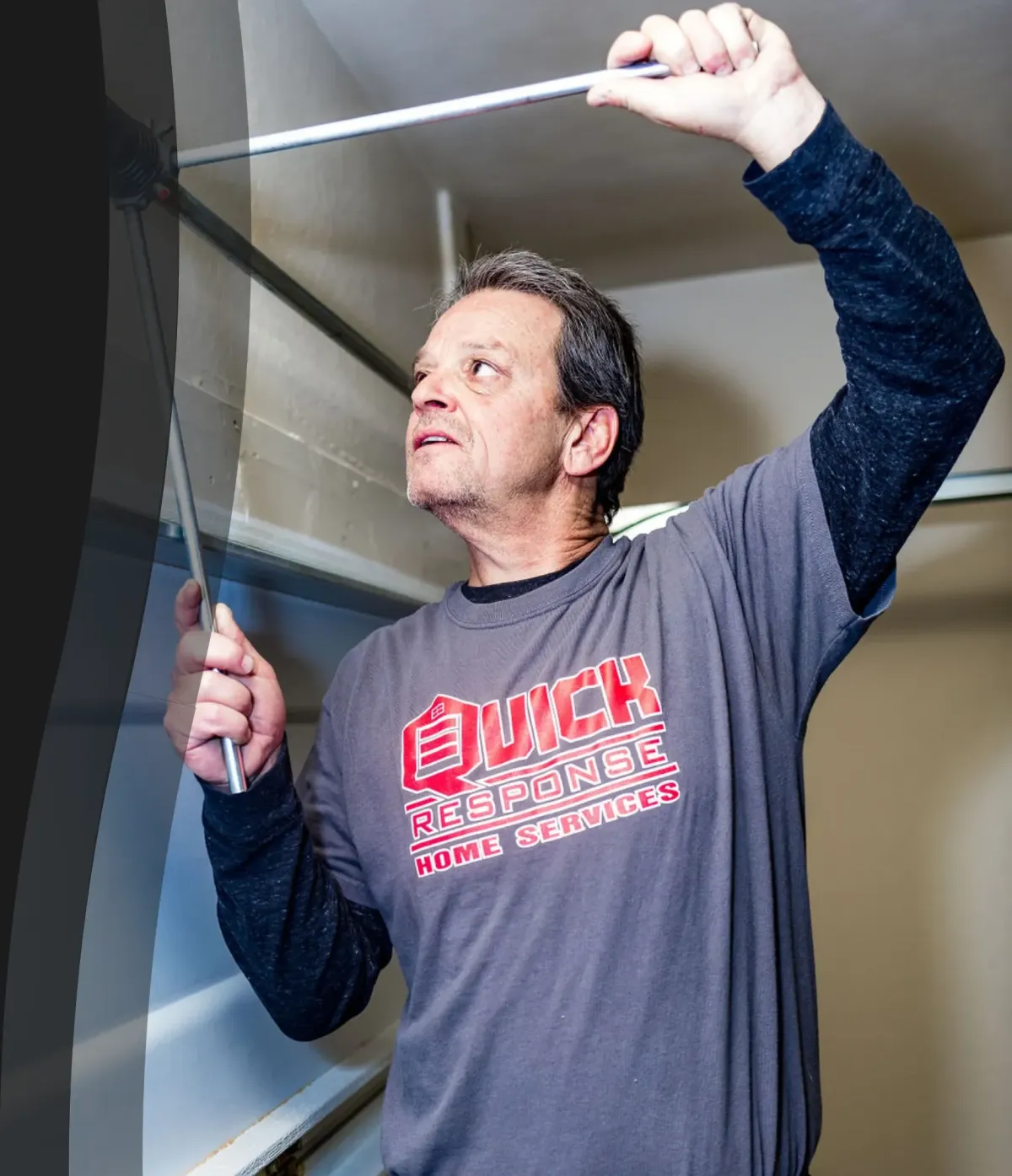




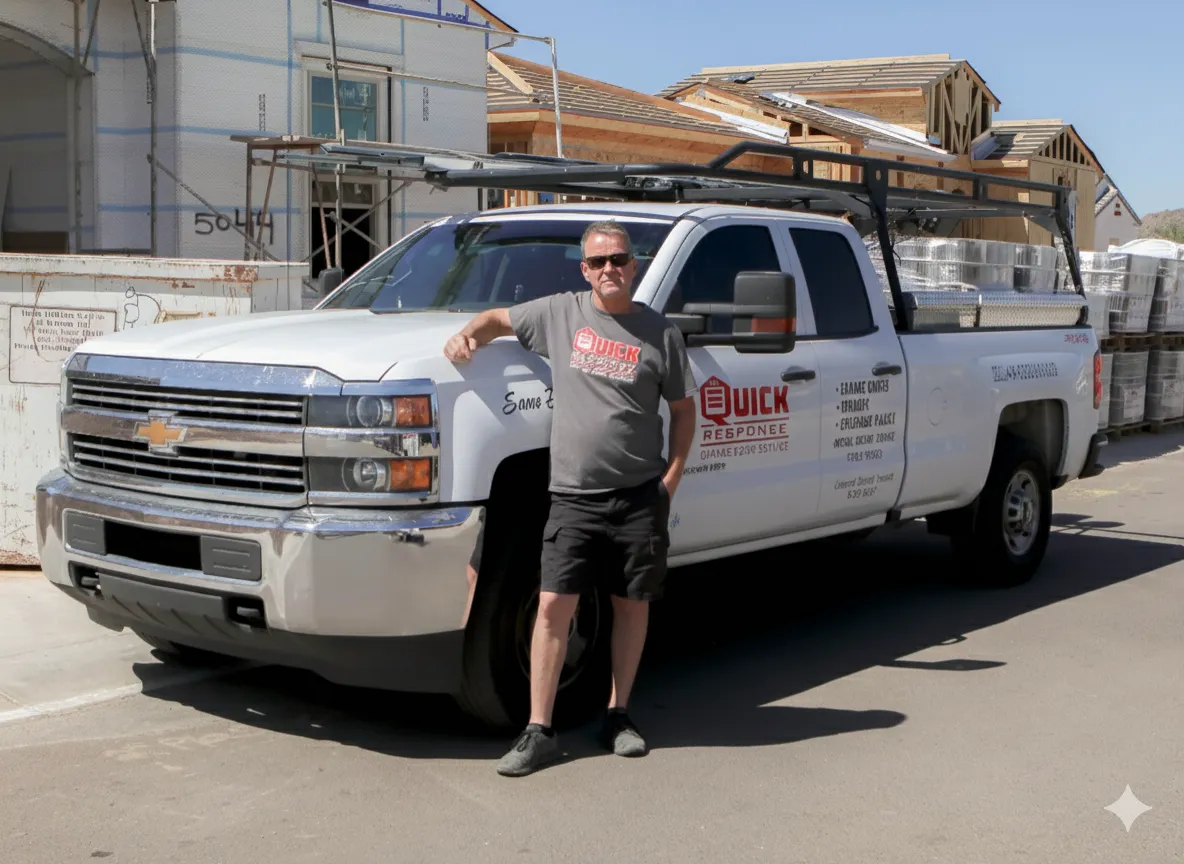
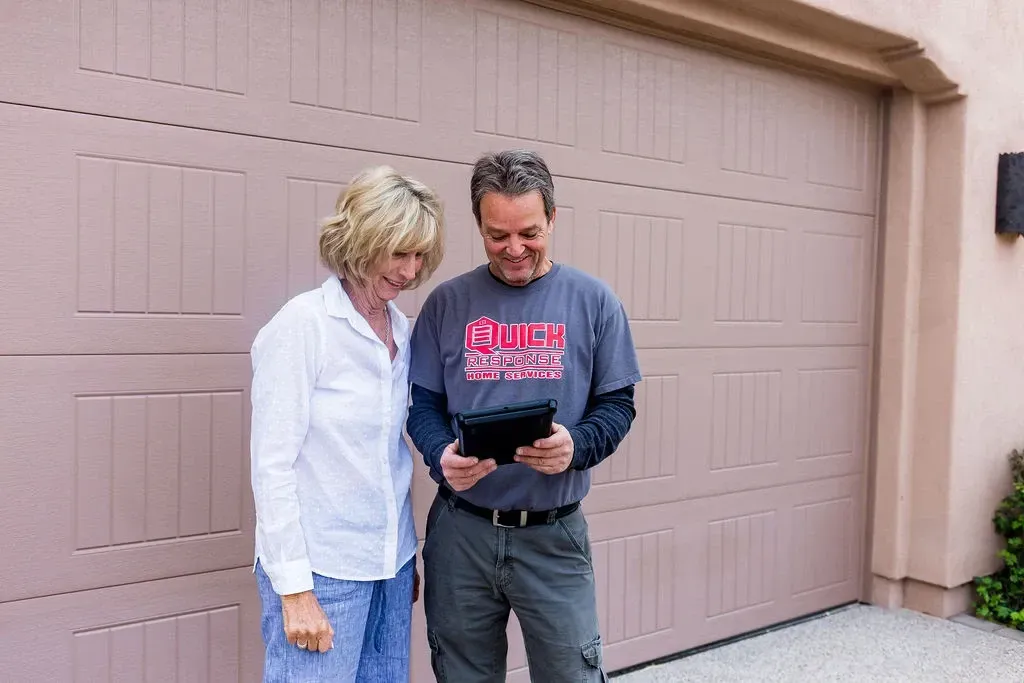
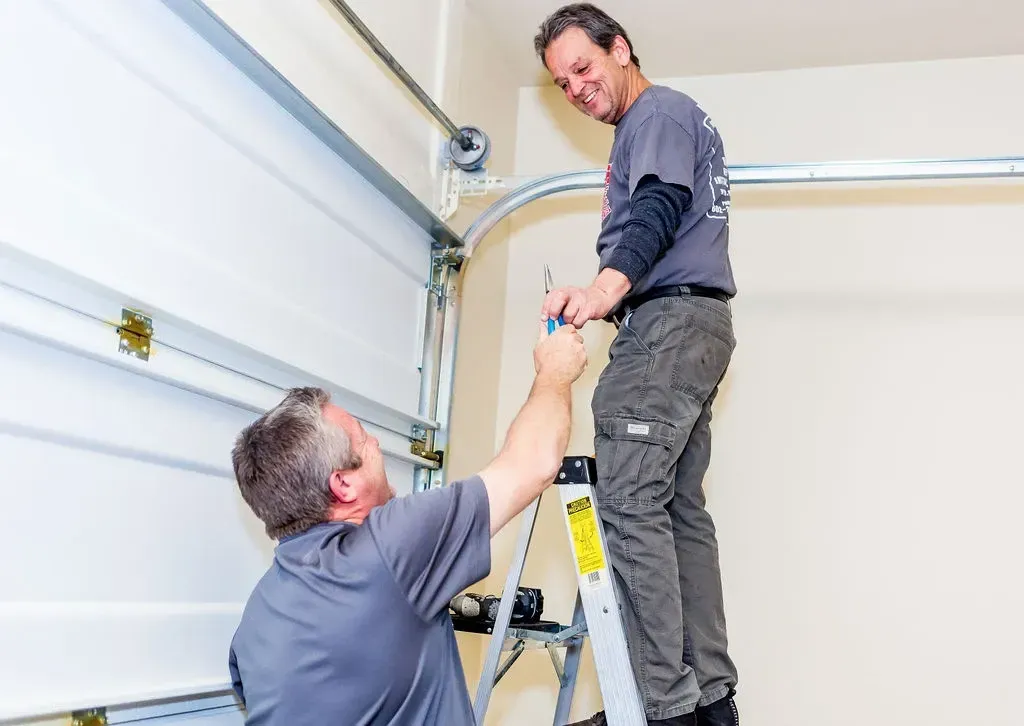
Every door we install is backed by a real warranty on both parts and labor. No fine print, no guessing, just clear protection for your home.
All of our doors come standard with upgraded hardware:
You get a stronger, longer lasting, and quieter door right from day one.
Warranty: 3 years on parts and labor
A durable, budget-friendly option for homes that do not need added insulation but still want reliable daily performance and safety.
Warranty: 3 years on parts and labor
Added insulation for better temperature control and a quieter garage. Ideal for homes with living space above or next to the garage.
Warranty: 5 years on parts and labor
A high performance, three layer insulated door with superior strength, energy efficiency, and noise reduction for maximum comfort.
We’re proud to hold an A+ rating from the Better Business Bureau. It reflects how seriously we take trust, communication, and the results we deliver for our clients.

We don’t just install doors and disappear. At Quick Response, we handle everything, from expert installations to fast repairs, opener replacements, spring fixes, and full system tune-ups.
One call. One team. One trusted company. We’re here for the life of your garage door, not just the sale.
⚠️ Attention Homeowners!
Most garage door companies make you jump through hoops to keep your warranty; like paying for a yearly tune-up just so they’ll honor it.
We think that’s complete nonsense.
At Quick Response, our warranties include both parts and labor - no surprise fees, no fine print, no “maintenance required” gimmicks. .
Because if we installed it, we stand behind it.
⚠️ Attention Homeowners!⚠️
Most garage door companies make you jump through hoops to keep your warranty; like paying for a yearly tune-up just so they’ll honor it.
We think that’s complete nonsense.
At Quick Response, our warranties include both parts and labor - no surprise fees, no fine print, no “maintenance required” gimmicks. Just honest, reliable coverage that actually protects you.
Because if we installed it, we stand behind it.
Prevent surprise breakdowns
Ensure safety and code compliance
Extend the life of your door system
Wide selection of modern, insulated doors
Installed with upgraded hardware for durability
Increases home value and energy efficiency
We fix it right the first time
No upsells or fluff — just honest repairs
Same-day service to get you back on track
Safe, professional spring replacement
High-cycle springs that last longer
Includes full system check for peace of mind
Keeps your door running smoothly and quietly
Helps avoid costly emergency repairs
No fake “required” visits to keep your warranty
Fix dents, cracks, or damage affordably
Color-matched panels for a seamless finish
Strengthens your system without full replacement
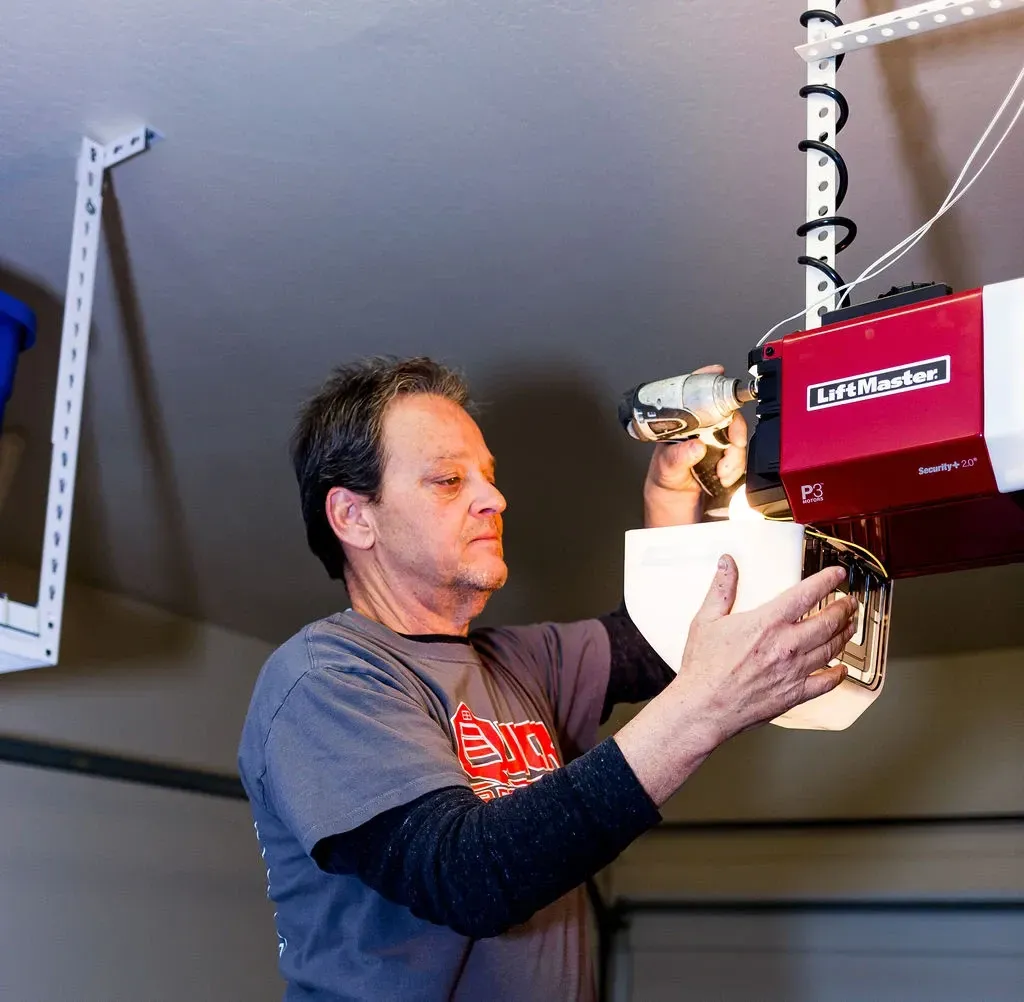
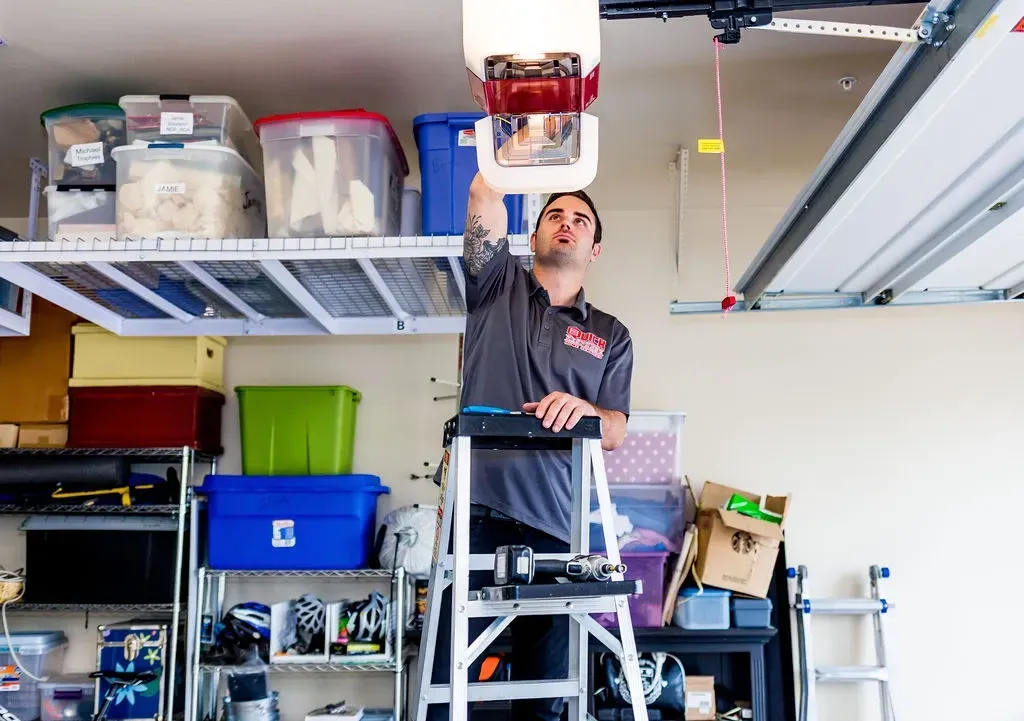
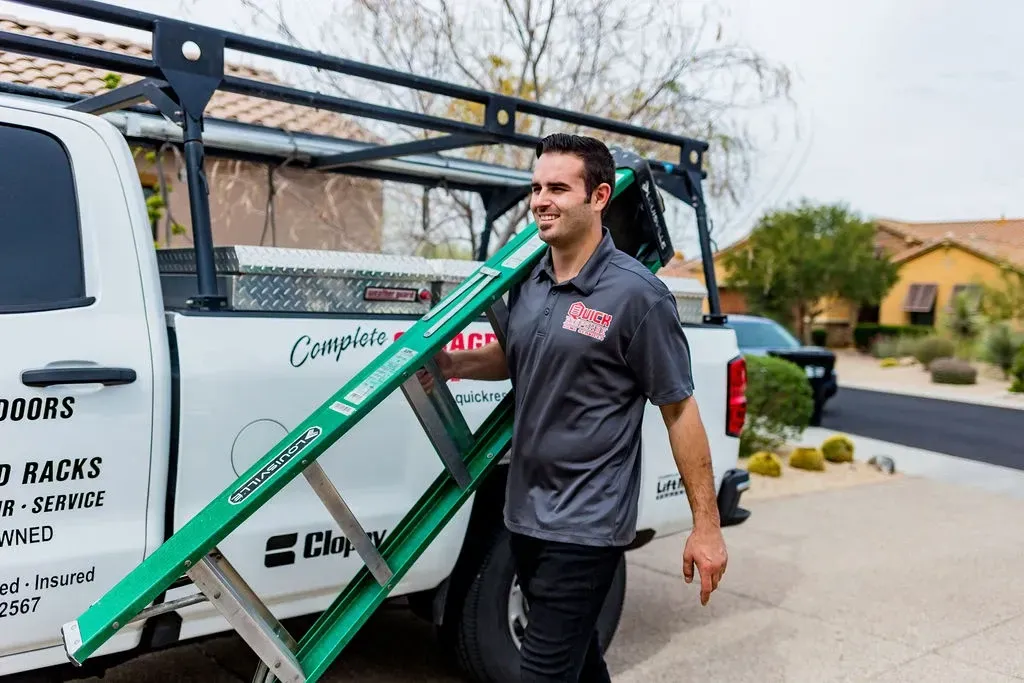
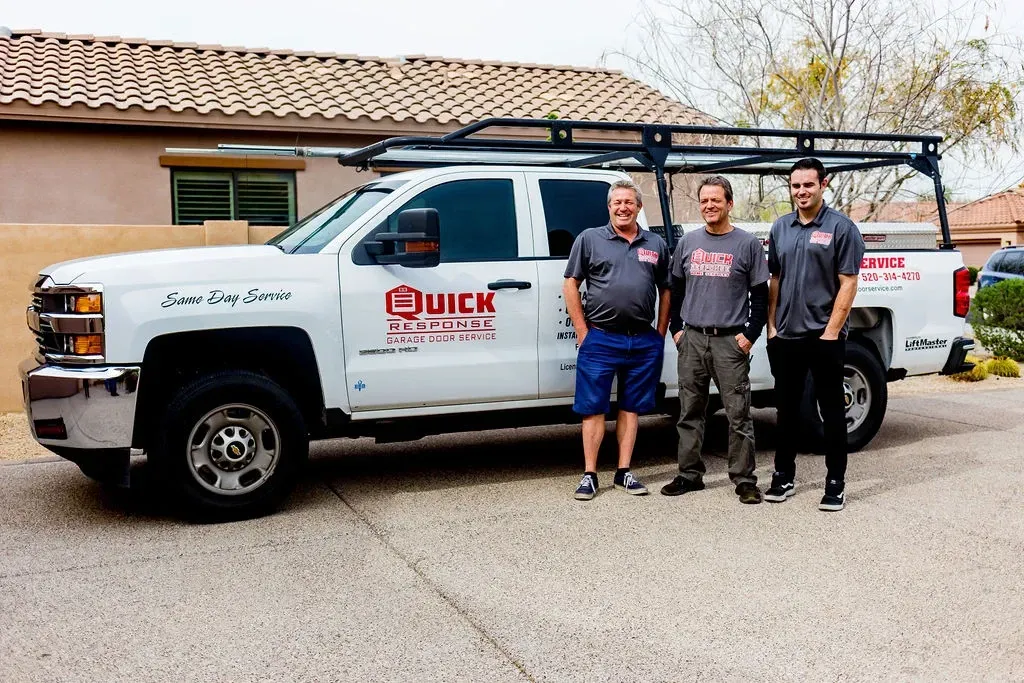
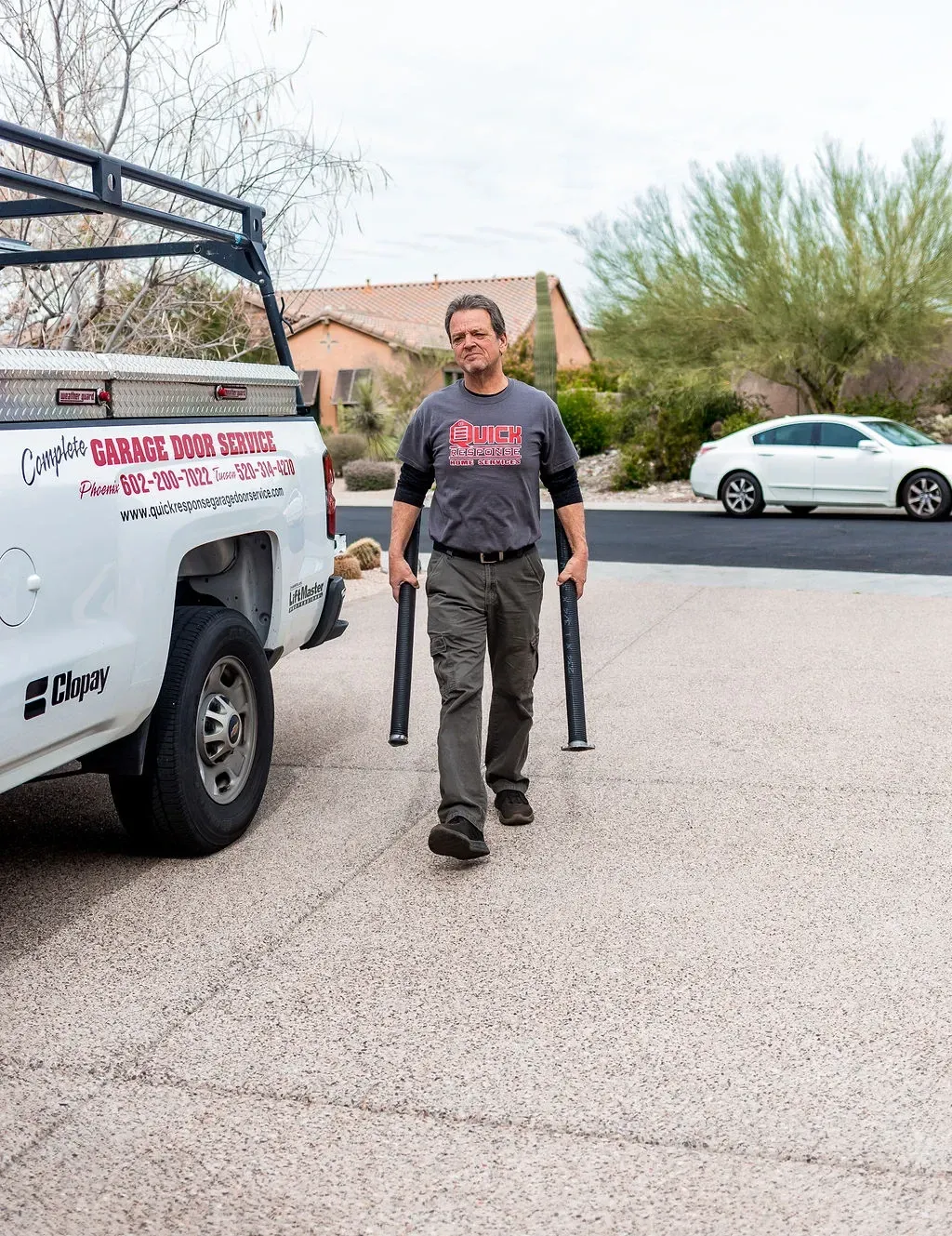
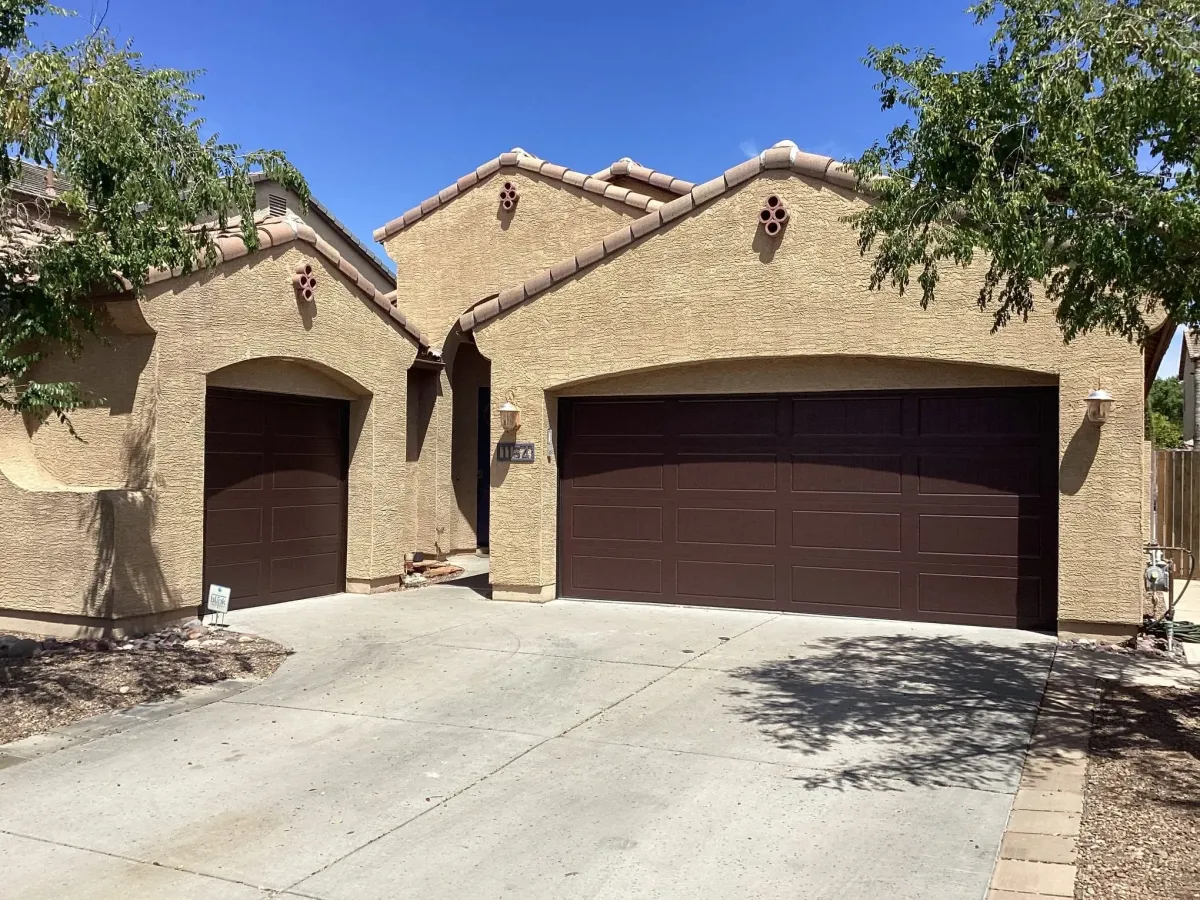
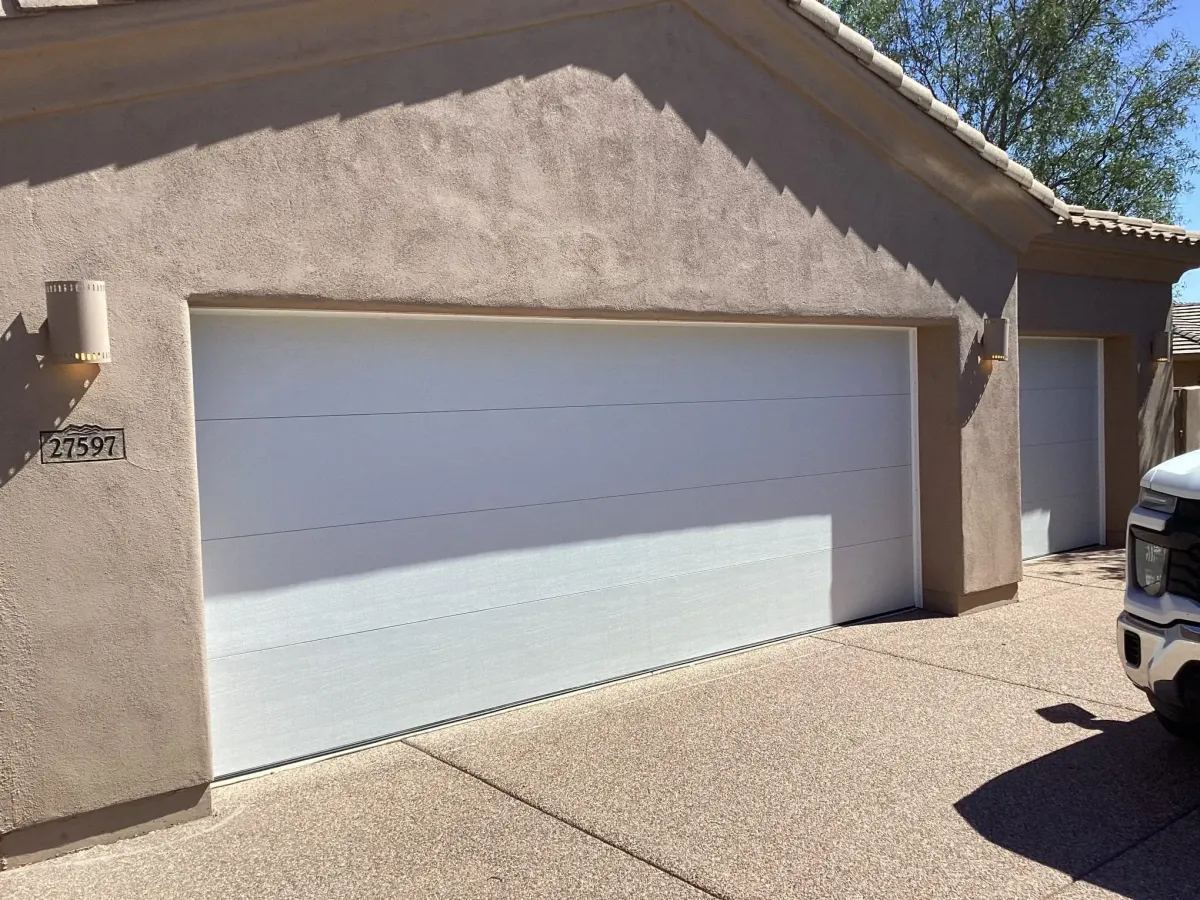
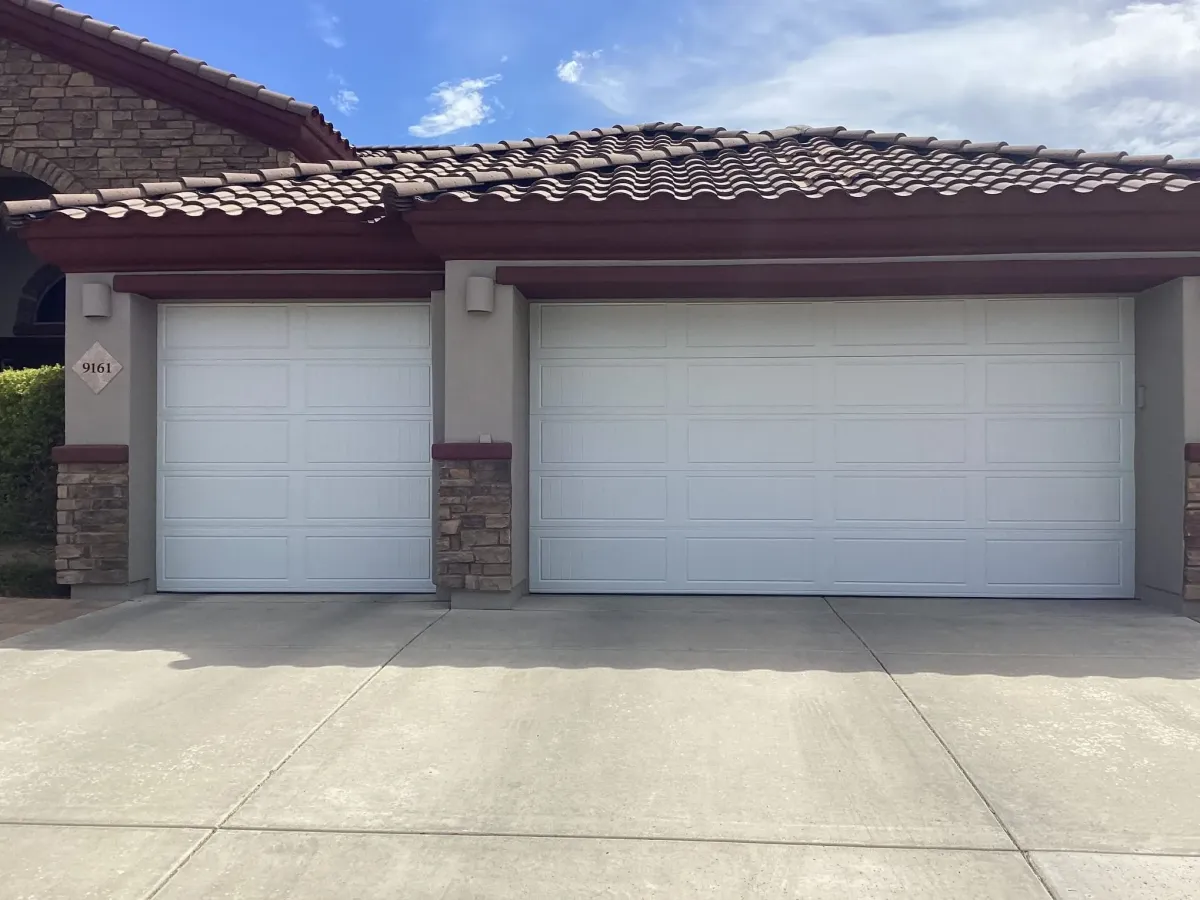
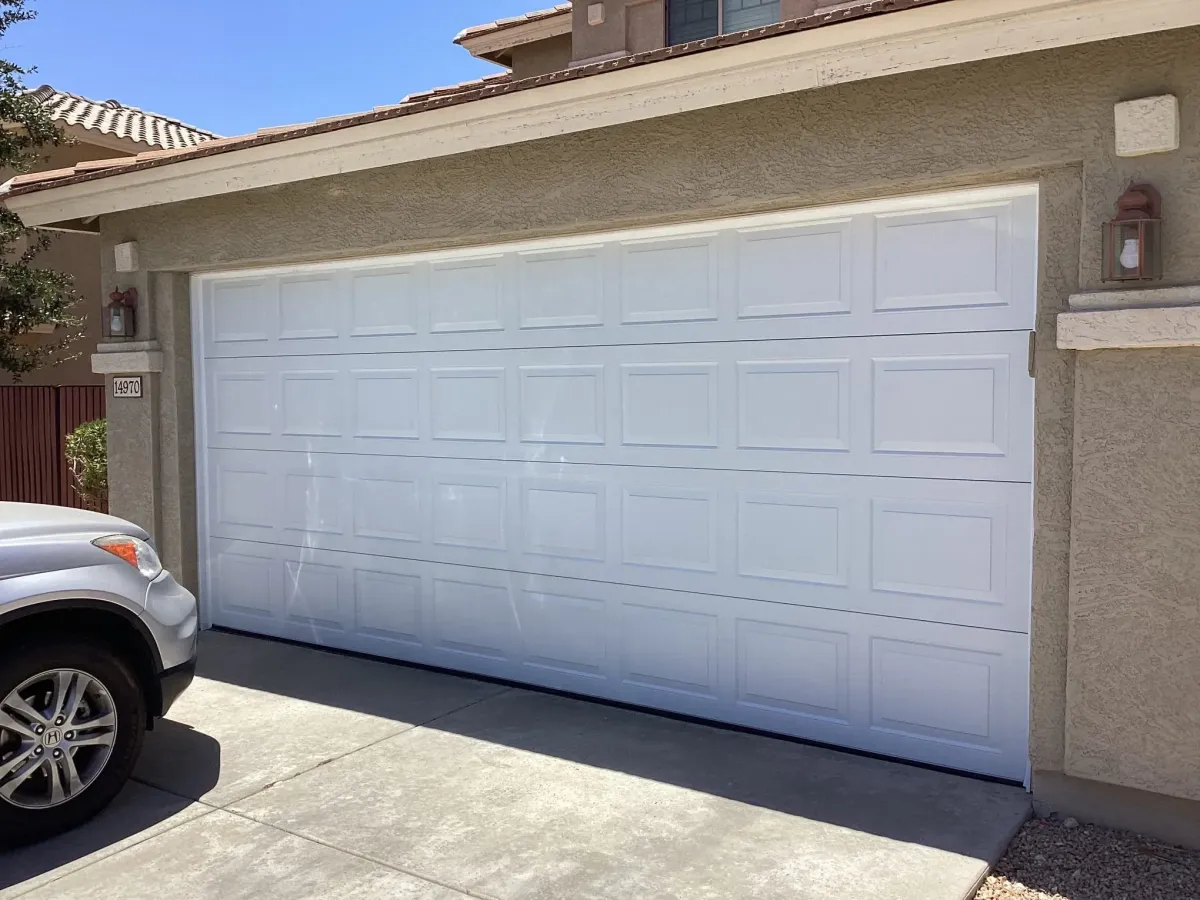
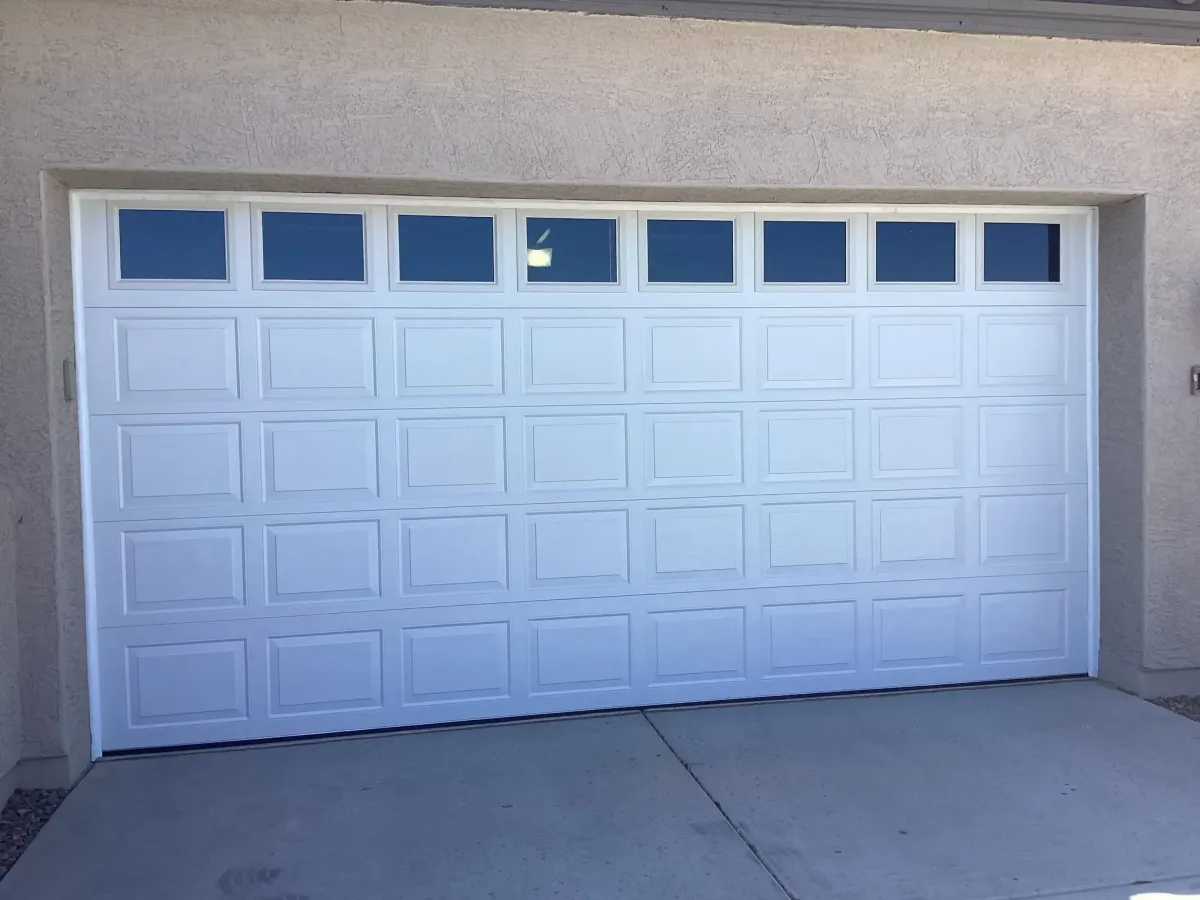
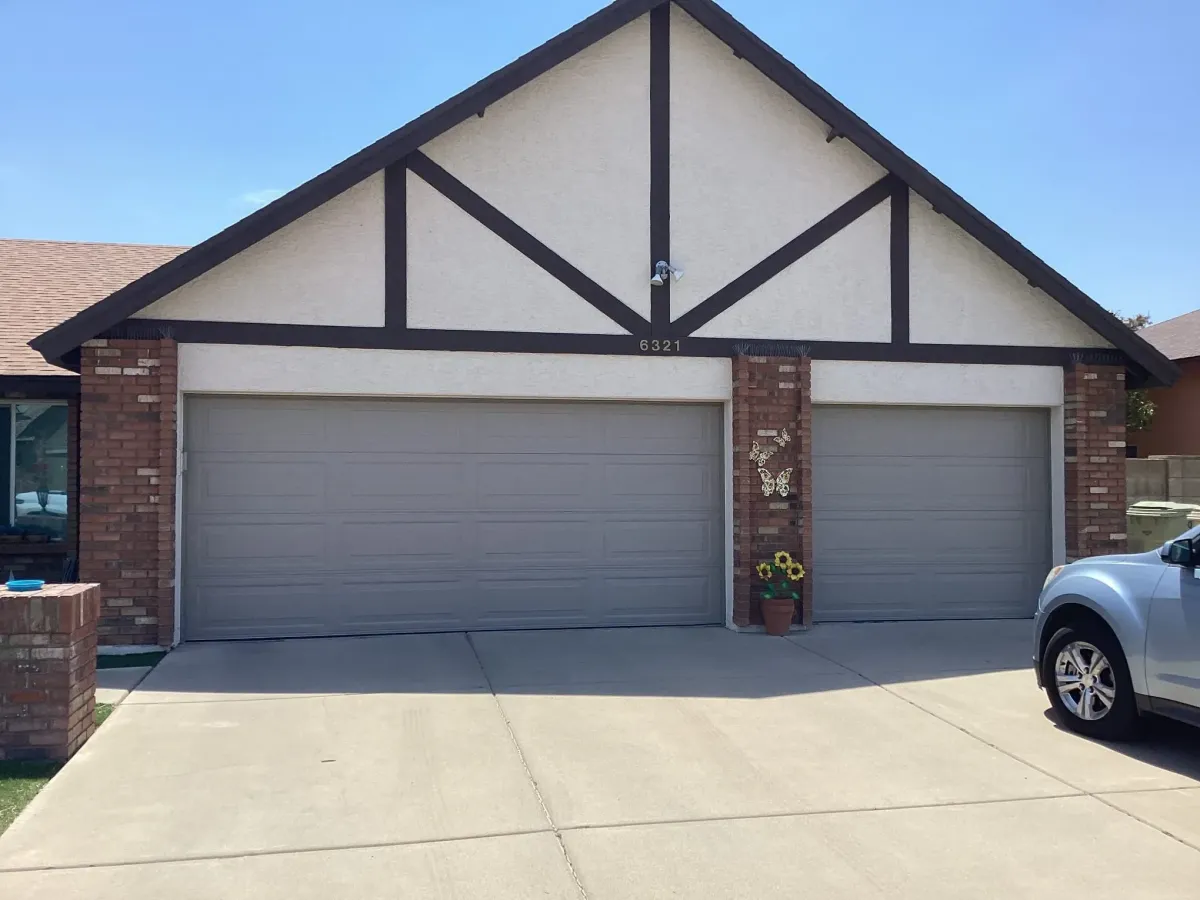

Your garage door is vital to your home, and we’re ready to handle every aspect of its care. We offer a full range of services, including:
Spring replacement
Emergency services
Whether you’re dealing with an unexpected breakdown or planning a stylish upgrade, we’re here to provide reliable, high-quality service.

We believe in providing outstanding value to our community.
Take advantage of our current offers to improve your home, such as:
$100 off a new single garage door and installation. Upgrade your home's look and security with a brand-new, professionally installed garage door.
$200 off a new double garage door and installation. Enjoy the convenience and protection of a larger garage door with significant savings.
$64 garage door tune-up. Our comprehensive same-day tune-up service keeps your system running smoothly and prevents costly future breakdowns.
Daniel came out and was very professional. He advised and made recommendations that I will implement. However he changed the damaged component and tested the door. Perfect. I will definitely call them back to make the recommeded changes as soon as the holidays pass.

Exceptional, explained in detail all information I needed

Highly recommend! We just moved into our home and had a few things come up, so we started looking for honest pricing to get our garage springs and cables fixed. Quick Response was exactly what we were looking for! Instead of saying, “We don’t know how much springs cost,” they gave us a clear estimate right over the phone. Of course, they mentioned that the price could change if more issues were found, but we appreciated their honesty and transparency.

Friendly and courteous staff. Quality work. Thank you!

Danny was legit awesome! He was timely, supportive and knows his stuff! Personable and took all the old stuff with him! I’d refer him a hundred times over!

Keegan was very pleasant and quickly replaced a broken roller on one of our doors, lubricated all of our doors and checked the operation of all of them. He completed all of this very quickly and for a fair price. We were very, very happy with his work and I would highly recommend him.

The service was quoted up front, transparent, and repairs were done same day even ahead of schedule. Bryan was knowledgeable and a pleasure to work with.

Scheduling was super easy, service was fast, Keegan the service technician was wonderful. He made sure the newly installed smart garage door opener equipment was all working properly before leaving the property.

You couldn’t ask for a more professional, responsive and honest business. Bryan, Daniel and Dwayne came by and worked efficiently to solve our garage door issue. And with firm handshakes and smiles to boot. Quick Reaponse they certainly are - with a can-do attitude. Thank you so much, Bryan and team. We are grateful for your help!

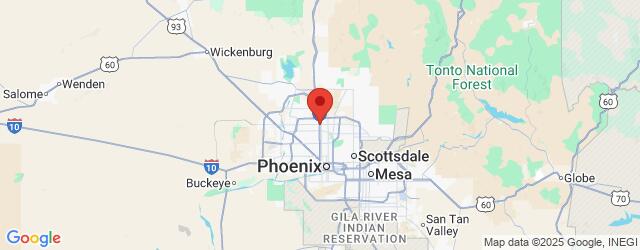
Quick Response Garage Door Services is proud to serve Phoenix, Arizona and other surrounding areas throughout Maricopa County.
Goodyear
Peoria
Glendale
Phoenix
Surprise
Gilbert
Chandler
San Tan Valley
Tempe
Paradise Valley
Buckeye
Ahwatukee
Queen Creek
Litchfield Park
Tolleson
Sun City
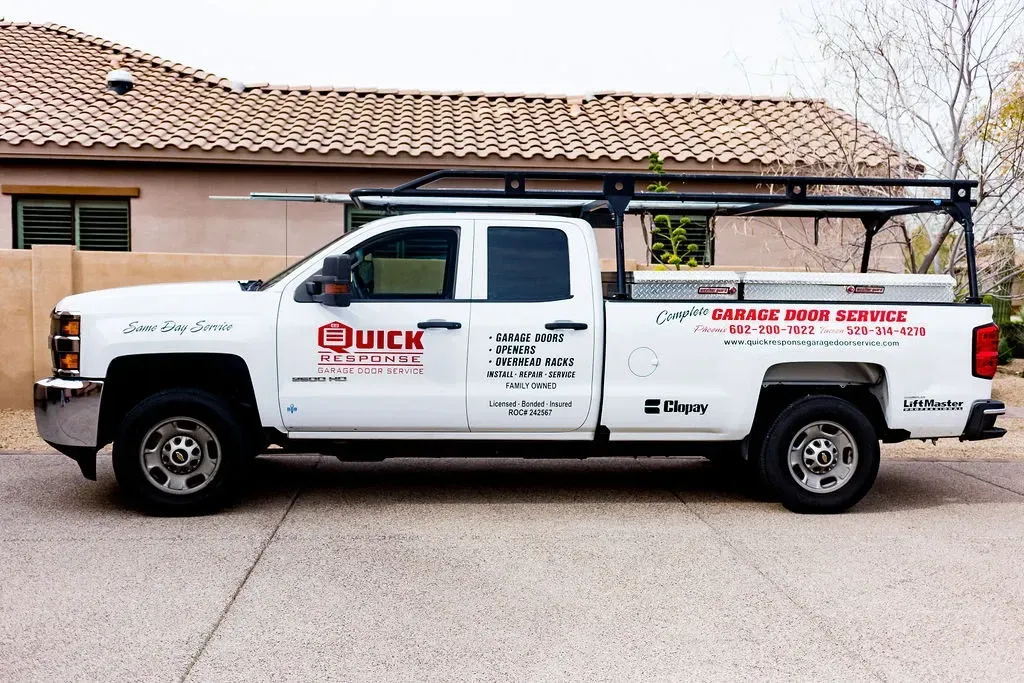
From emergency repairs to brand-new installations, Quick Response Garage Door Service is the name Greater Phoenix residents trust. Let us show you the difference that professional, friendly, and reliable service can make.
Contact us online or call (602) 351-5598 today for a free estimate for garage door services in Phoenix today.
Got questions? We’ve got answers.
Get simple, honest answers about our garage door services and what to expect.
If your garage door is making loud noises, not opening smoothly, or has visible damage, it might just need garage door repair services. But if it’s an older garage door system, or you're dealing with recurring issues or damaged panels, it might be time for a new garage door. Our experienced technicians will inspect your door system, check for broken springs or other garage door issues, and recommend the best option. Whether you need repair or garage door installation, we’re here to help you make the right choice for your home in Phoenix, AZ.
There are several reasons your garage door opener might not be working properly. It could be the remote, the wiring, the sensors, or even a faulty garage door. Sometimes it’s as simple as needing fresh batteries; other times, it could be a bigger issue like worn-out garage door springs or misaligned tracks. Our expert technicians can quickly diagnose and fix the problem with the right repair services, so you can get back to using your garage with ease.
We offer same day service for most garage door repair needs in Phoenix, AZ and throughout the East Valley. Whether it’s an emergency garage door problem or regular maintenance, our local garage team is ready to help. You can even schedule online for faster service. We know how frustrating a stuck garage door can be — that’s why we offer fast and reliable service when you need it most.
Absolutely! We provide garage door installation services across Phoenix and nearby areas. Whether you're upgrading to a more energy efficient model, improving your home's curb appeal, or replacing a worn-out door, we offer a wide selection of top quality brands. Our skilled technicians ensure professional installation that fits your home's design, and we always use quality parts to ensure your new door lasts for years. Contact us for a free estimate today!
The cost depends on the issue — for example, broken springs, damaged rollers, or a faulty garage door opener can all vary in price. We’re happy to provide a free quote with no hidden fees. We pride ourselves on customer satisfaction, so we always offer the highest quality service at fair prices. Whether it's residential garage door repair, routine garage door maintenance, or new garage door installation, we’ll give you a clear, upfront price before we start the job.
Regular garage door maintenance is the key. This includes safety inspections, tune ups, lubricating moving parts, and checking for potential problems before they turn into big repairs. Our preventative maintenance plans help you avoid urgent issues, save money, and extend the life of your garage door system. Plus, it keeps your garage door operating safely and smoothly year-round — especially important with the extreme weather in Phoenix, AZ.
Yes, we specialize in replacing garage door springs safely and quickly. Broken springs are one of the most common garage door issues homeowners face, and they can be dangerous if not handled by experienced technicians. Our expert team will come out, assess the problem, and get your garage door back in shape — usually the same day. Don’t wait with a faulty garage door — it’s a safety risk and can lead to more damage if left unchecked.
We’re a family owned, locally owned company proudly serving homeowners across Phoenix, AZ and the East Valley. Our reputation is built on happy customers, highest quality service, and real results. We use only top quality brands, offer honest pricing with no hidden fees, and our skilled technicians are trained to handle everything from emergency garage door repairs to full new installations. Whether you need repair, maintenance, or a garage door opener, we’re the team you can count on. Schedule your appointment today!
Our team will listen to your needs, answer your questions, and help you find the right solution.

Step 1
Get in Touch

Our expert team gets it done fast with top quality parts and same day service across Phoenix, AZ.
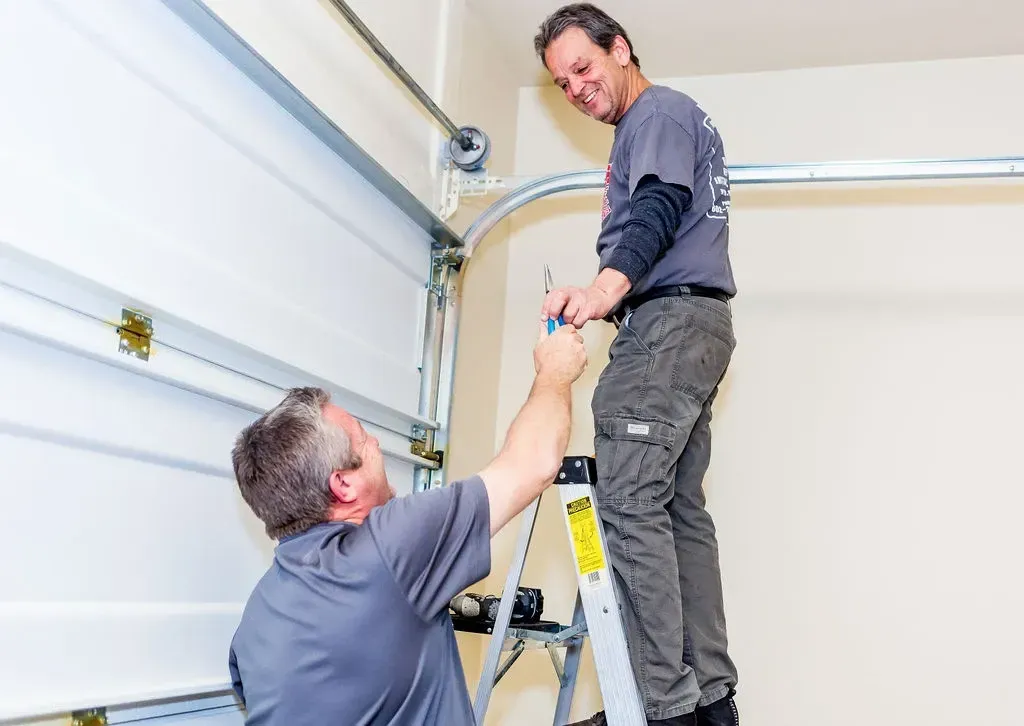
Step 2
We Work

Relax with a garage door that looks great, works properly, and boosts your home’s curb appeal.

Step 3
Enjoy

Our team will listen to your needs, answer your questions, and help you find the right solution.
Our expert team gets it done fast with top quality parts and same day service across Phoenix, AZ.
Relax with a garage door that looks great, works properly, and boosts your home’s curb appeal.

Step 1
Get in Touch


Step 2
We Work


Step 3
Enjoy


We show up on time, fix it right the first time, and keep your garage door working without the hassle.

Integrity
No upsells, no fluff; just clear pricing, honest advice, and garage door repair or installation done exactly as promised.

Service That Stands Out
Friendly local team, fast response, and garage door services that boost your home’s curb appeal and last for years.